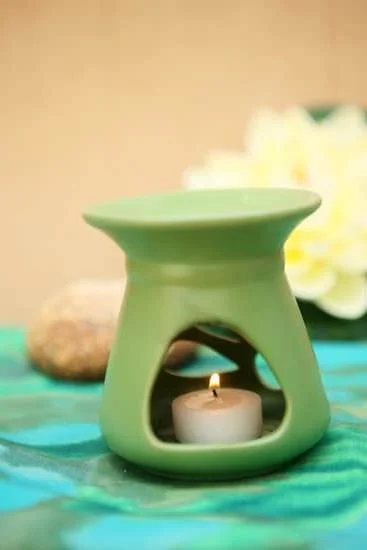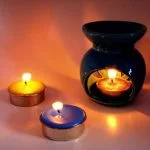Are you having trouble getting a good night’s sleep? Perhaps the solution lies in the power of aromatherapy sleep scents.
Aromatherapy has long been known for its ability to promote relaxation and improve overall well-being, and when it comes to sleep, certain scents can work wonders in helping you drift off into a peaceful slumber. In this article, we will explore the benefits of using aromatherapy for sleep, understanding what it is and how it works, as well as the best essential oils for promoting restful sleep.
Aromatherapy involves using natural plant extracts such as essential oils to promote physical and psychological well-being. These oils are typically extracted from flowers, herbs, or other plants and can be used in a variety of ways to induce relaxation and improve sleep quality. The use of specific scents has been found to have a therapeutic effect on the mind and body, making aromatherapy an effective tool for those struggling with insomnia or other sleep-related issues.
Understanding how scent can impact our sleep patterns requires delving into the science of sleep. Research has shown that certain aromas can have a calming effect on the nervous system, helping to reduce stress and anxiety – two common culprits of sleep disturbances. By exploring the connection between scent and sleep, we can better understand how aromatherapy can be used to create an optimal sleeping environment.
Understanding Aromatherapy
Aromatherapy is a natural practice that involves using the scent of essential oils to promote physical and psychological well-being. The use of aromatherapy for sleep has gained popularity in recent years as individuals seek out alternative remedies for insomnia and other sleep disorders. But what exactly is aromatherapy, and how does it work?
What Is Aromatherapy?
Aromatherapy is a holistic healing treatment that uses natural plant extracts to promote health and well-being. These plant extracts, also known as essential oils, are derived from various parts of plants such as flowers, leaves, stems, and roots. The oils can be inhaled or diluted and applied to the skin during a massage.
How Does It Work?
The sense of smell is directly linked to the brain’s limbic system, which controls emotions, behaviors, and memories. When the scent molecules from essential oils are inhaled, they stimulate the olfactory nerves and send signals to the brain. This process can trigger a variety of emotional and psychological responses, including relaxation, stress relief, and improved sleep.
The Benefits for Sleep
When it comes to using aromatherapy for sleep, certain essential oils have been found to have sedative effects that can help promote relaxation and improve sleep quality. These effects can help calm the mind and body, making it easier to fall asleep and stay asleep throughout the night.
Some common essential oils used for sleep include lavender, chamomile, bergamot, sandalwood, and cedarwood. Incorporating these oils into your bedtime routine through diffusers or homemade blends can create a soothing environment conducive to a restful night’s sleep.
The Science of Sleep
The sense of smell is closely linked to the part of the brain that controls emotions and memories, which is why certain scents can have a powerful impact on our mood and mental state. This connection between scent and emotions also plays a significant role in sleep quality.
Research has shown that certain aromas can help promote relaxation, reduce anxiety, and improve overall sleep quality. This is where aromatherapy comes into play, using essential oils to create a calming environment that can support better sleep.
One study published in the National Institutes of Health found that inhaling lavender essential oil before bed led to an increase in deep sleep and overall better sleep quality. Another study showed that inhaling the scent of chamomile essential oil reduced symptoms of anxiety and improved overall well-being. These findings highlight the potential of aromatherapy in promoting a restful night’s sleep.
The key to understanding how aromatherapy works for sleep lies in its ability to activate the limbic system, which is the part of the brain responsible for regulating emotions, stress, and memory. By inhaling specific essential oils with calming properties, such as lavender, chamomile, or bergamot, it’s possible to signal the brain to enter a state of relaxation and prepare for sleep.
Whether used through diffusers, pillow sprays, or homemade blends, incorporating aromatherapy into your bedtime routine can be a natural and effective way to improve your sleep quality.
| Essential Oil | Sleep Benefits |
|---|---|
| Lavender | Increases deep sleep; improves sleep quality |
| Chamomile | Reduces anxiety; promotes relaxation |
| Bergamot | Calms stress; induces relaxation |
Best Essential Oils for Sleep
When it comes to using aromatherapy for sleep, choosing the right essential oils is crucial. Certain oils are known for their calming and sedative properties, making them ideal for promoting a restful night’s sleep. Here, we’ll explore the best essential oils for sleep and how they can help improve the quality of your rest.
Lavender Oil
Lavender essential oil is perhaps the most well-known oil for promoting relaxation and sleep. Its soothing floral scent has been used for centuries to alleviate anxiety and insomnia. Research has shown that lavender oil can help lower heart rate and blood pressure, creating an optimal environment for falling asleep.
Chamomile Oil
Chamomile essential oil is another popular choice for promoting sleep. Its sweet, herbaceous aroma has a calming effect on the mind and body, making it easier to unwind before bedtime. Chamomile oil also contains compounds that have been linked to improved sleep quality and reduced symptoms of insomnia.
Sandalwood Oil
Sandalwood essential oil has a warm, woodsy scent that is both grounding and relaxing. This oil is known for its ability to induce a sense of tranquility, helping to quiet the mind and prepare the body for sleep. Sandalwood oil can also promote deep breathing and reduce stress, further enhancing its potential as a sleep aid.
Incorporating these essential oils into your bedtime routine through aromatherapy diffusers or homemade blends can have a significant impact on your ability to relax and drift off to sleep peacefully.
How to Use Aromatherapy for Sleep
Aromatherapy is a natural way to promote relaxation and improve sleep quality. Incorporating aromatherapy into your bedtime routine can help you wind down and prepare your body for rest. Here are some tips and techniques for using aromatherapy for sleep:
One popular method of using aromatherapy for sleep is through the use of essential oil diffusers. These devices disperse the scent of the essential oils into the air, allowing you to breathe in the aroma as you relax in bed. Some popular essential oils for promoting sleep include lavender, chamomile, and sandalwood. Using a diffuser with these scents can create a calming atmosphere that primes your body for sleep.
Another way to incorporate aromatherapy into your bedtime routine is through topical application of essential oils. This can be done by adding a few drops of essential oil to a carrier oil, such as coconut or jojoba oil, and massaging it into your skin. Alternatively, you can add a few drops of essential oil to a warm bath or shower before bed. The soothing scents will help relax your mind and body, making it easier to drift off to sleep.
If you prefer not to use a diffuser or apply essential oils directly to your skin, you can also try using scented sleep aids such as pillows or linen sprays. Spritzing your pillow with a calming scent like lavender before bed can create a peaceful environment that promotes relaxation and helps lull you into a restful slumber.
| Using Aromatherapy for Sleep | Tips and Techniques |
|---|---|
| Use an essential oil diffuser with calming scents like lavender | Diffusers create a calming atmosphere in the bedroom |
| Apply diluted essential oils to the skin or add them to bathwater | Aromatherapy through topical application promotes relaxation |
| Try scented sleep aids like pillows or linen sprays | Calming scents on bedding can promote better sleep quality |
Aromatherapy Sleep Scent Recipes
Aromatherapy offers a natural and effective way to promote a restful night’s sleep. By creating your own custom sleep-inducing scents, you can harness the power of aromatherapy to improve the quality of your sleep. Here are some DIY blend ideas for creating your own aromatherapy sleep scents:
- Lavender and Chamomile: Both lavender and chamomile essential oils are known for their calming and relaxing properties. Combine a few drops of each oil with a carrier oil, such as sweet almond or jojoba, and use this blend in a diffuser before bedtime.
- Cedarwood and Bergamot: Cedarwood essential oil has a grounding effect, while bergamot is uplifting and balancing. Mix these two oils together to create a soothing and harmonizing scent for promoting peaceful sleep.
- Ylang Ylang and Sandalwood: Ylang ylang is often used to reduce feelings of stress and promote relaxation, while sandalwood has a warm, woodsy aroma that is comforting. Blend these two oils with a carrier oil for an exotic and tranquil scent for bedtime.
Incorporating these custom sleep-inducing scents into your bedtime routine can help you relax and unwind, setting the stage for a restful night’s sleep. Whether you prefer to use them in a diffuser, as an addition to your bath, or applied directly to your skin with a carrier oil, these DIY blend ideas allow you to tailor the aromatherapy experience to your personal preferences.
Creating your own custom sleep-inducing scents also allows you to experiment with different combinations of essential oils until you find the perfect blend that works for you. The beauty of aromatherapy is that it can be personalized to suit individual needs, so feel free to get creative and explore different scent combinations until you discover the one that helps lull you into a deep and rejuvenating slumber.
The Power of Aromatherapy Diffusers
Aromatherapy diffusers are an excellent way to enjoy the benefits of essential oils for sleep. These devices work by dispersing the aroma of essential oils into the air, allowing you to breathe in the soothing scents and reap their sleep-inducing effects. There are several types of aromatherapy diffusers available, each offering its own unique features and benefits. Here are some popular types of aromatherapy diffusers:
- Ultrasonic Diffusers: These diffusers use ultrasonic vibrations to disperse a fine mist of essential oil particles into the air. They also act as humidifiers, adding moisture to the room which can be especially helpful during dry winter months.
- Nebulizing Diffusers: Nebulizing diffusers do not require water or heat to disperse essential oils. Instead, they use pressurized air to break the oils into tiny particles that are released into the air in a concentrated form.
- Heat Diffusers: These diffusers use heat to release the scent of essential oils into the air. While they are simple and affordable, they may alter the chemical composition of the oils, potentially reducing their therapeutic benefits.
In addition to their ease of use and convenience, aromatherapy diffusers offer several benefits for sleep. By using a diffuser, you can create a calming atmosphere in your bedroom that promotes relaxation and helps prepare your body for sleep. The gentle mist or scent released by the diffuser can help clear your mind and alleviate stress and anxiety, making it easier to drift off into a restful slumber.
When choosing an aromatherapy diffuser for sleep, it’s important to select one that is easy to clean and maintain. It’s also crucial to use high-quality essential oils specifically formulated for promoting sleep. By incorporating an aromatherapy diffuser into your bedtime routine, you can create a peaceful environment that enhances your overall sleep quality.
Aromatherapy Sleep Products
When it comes to incorporating aromatherapy into your bedtime routine, there are a wide variety of products on the market designed to help you achieve a restful night’s sleep. From essential oil blends to diffusers to sleep-enhancing sprays, there are numerous options available for those looking to take advantage of the benefits of aromatherapy for sleep.
One popular option for incorporating aromatherapy into your nightly routine is through the use of essential oil diffusers. These devices work by dispersing the scent of your chosen essential oils throughout the air, allowing you to breathe in the soothing aroma as you drift off to sleep. Diffusers come in a variety of styles and can be used with different types of essential oils, making them a versatile and effective tool for promoting better sleep.
In addition to diffusers, there are also several other aromatherapy sleep products that can help create a peaceful and calming environment conducive to sleep. Sleep masks infused with relaxing scents, linen sprays made with sleep-inducing essential oils, and pillow mists designed to promote relaxation are just a few examples of products that can help enhance your nightly routine.
These products can be used in conjunction with other aromatherapy techniques, such as inhaling essential oil blends or applying them directly to the skin, to create a multi-sensory approach to improving sleep quality. Whether you prefer a hands-on approach with DIY recipes or ready-to-use products, there is an abundance of aromatherapy sleep products available to suit your individual needs and preferences.
Conclusion
In conclusion, the use of aromatherapy sleep scents has been shown to have numerous benefits for promoting a restful and rejuvenating night’s sleep. By harnessing the power of essential oils and their soothing properties, individuals can create a relaxing environment that supports better sleep quality. The science behind scent and sleep has demonstrated how certain aromas can help to calm the mind and body, making it easier to unwind and drift off into a peaceful slumber.
For those interested in incorporating aromatherapy into their bedtime routine, there are various methods available, from using diffusers to creating custom blends. Whether it’s lavender for its calming effects or chamomile for its stress-relieving properties, there is a wide range of essential oils that can cater to different preferences and needs. Additionally, the use of aromatherapy sleep products such as pillow sprays and linen mists can provide a gentle and long-lasting scent that enhances the sleeping environment.
As we wrap up this exploration of aromatherapy for sleep, it’s important to emphasize that trying out these techniques is a low-risk but potentially high-reward endeavor for anyone struggling with sleep issues. Incorporating aromatherapy into your nightly routine is an easy way to experiment with natural solutions for improving sleep quality.
So why not give it a try and see if the power of aromatherapy can help you achieve the peaceful night’s rest you’ve been longing for?
Frequently Asked Questions
What Is the Best Scent for Sleeping?
The best scent for sleeping can vary from person to person, but lavender is often considered one of the most effective. Its calming and soothing properties can help promote relaxation and better sleep quality.
Which Aroma Oil Is Best for Sleep?
When it comes to aroma oils for sleep, lavender essential oil is a popular choice due to its well-known calming effects. Other options like chamomile, valerian, and bergamot essential oils are also believed to aid in promoting better sleep.
What Is the Most Relaxing Scent in Aromatherapy?
In aromatherapy, the most relaxing scent is often considered to be lavender. Its floral, sweet, and herbaceous aroma has been shown to have a calming effect on the mind and body, making it a popular choice for stress relief and relaxation.

Are you looking for a natural way to improve your health and wellbeing?
If so, aromatherapy may be the answer for you.





